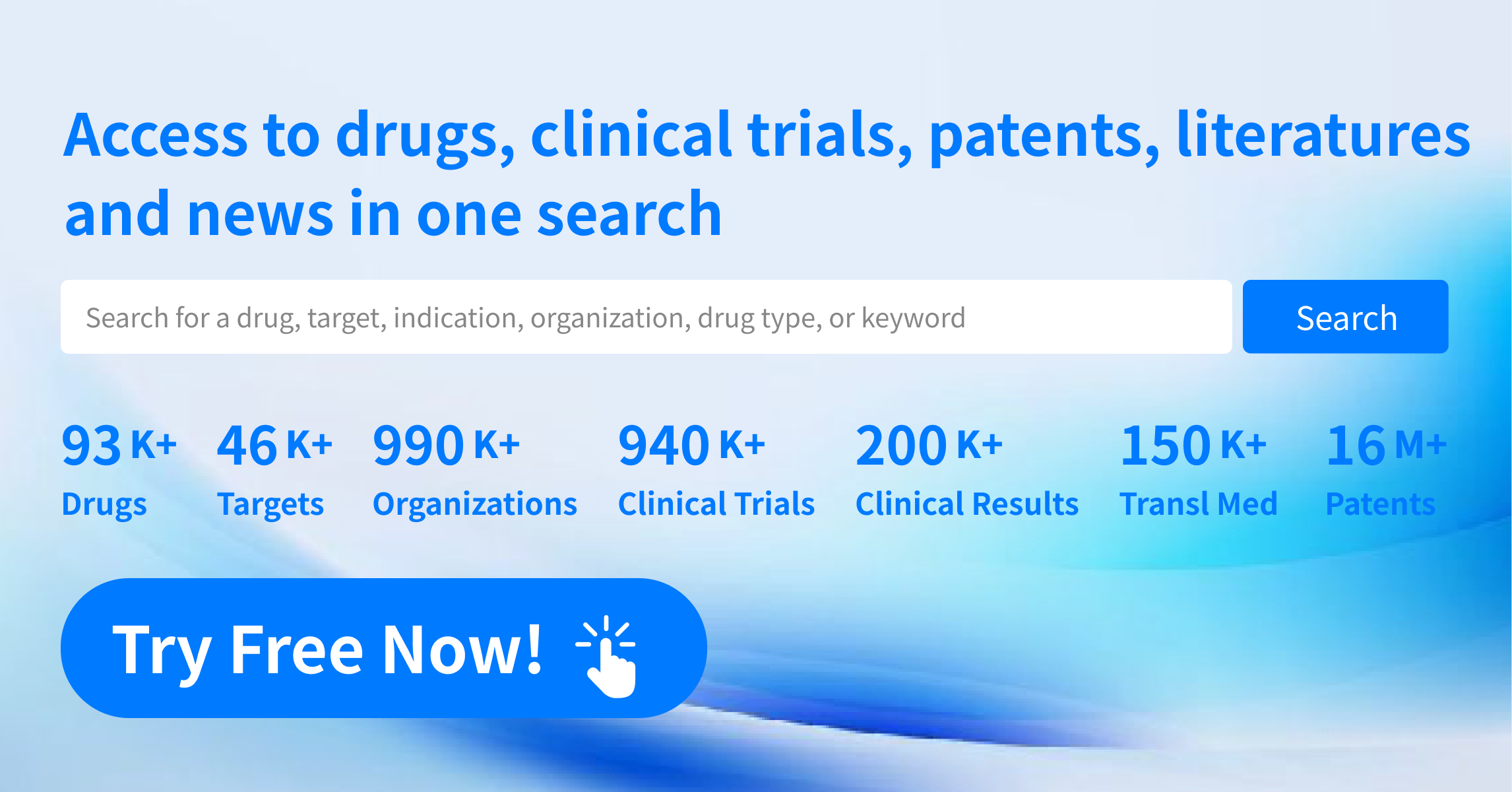Pharma Frontiers: Daily Digest of Global Pharmaceutical News – Aug 29
1.Johnson & Johnson Announces EU Approval for Rybrevant
On August 28th, Johnson & Johnson announced that the European Commission (EC) has approved the use of its bispecific antibody Rybrevant (amivantamab) in combination with chemotherapy (Carboplatin and Pemetrexed) for the treatment of adult patients with advanced non-small cell lung cancer (NSCLC) harboring epidermal growth factor receptor (EGFR) exon 19 deletions (ex19del) or exon 21 L858R substitution mutations. This treatment is intended for those who have previously undergone therapy including EGFR tyrosine kinase inhibitors (TKIs) and have experienced disease progression. The press release highlighted that the combination of amivantamab with chemotherapy is the first treatment regimen in this patient population to demonstrate a significant improvement in progression-free survival (PFS) compared to chemotherapy alone.
This approval is primarily based on the results from the Phase 3 clinical trial, MARIPOSA-2, which evaluated the efficacy and safety of amivantamab combined with chemotherapy in patients with locally advanced or metastatic NSCLC bearing EGFR ex19del or L858R substitution mutations, who have progressed during or after treatment with Osimertinib. Analysis showed that the trial met its primary endpoint, significantly reducing the risk of disease progression or death by 52% in patients receiving the amivantamab combination therapy compared with those receiving chemotherapy alone, with a PFS of 6.3 months versus 4.2 months for the control group (HR=0.48; 95% CI: 0.36–0.64; P<0.001). Additionally, the objective response rate (ORR) in the amivantamab combination therapy group was 64%, as opposed to 36% in the control group.
2.Novartis Announces Success in Phase III Study of siRNA Therapy for Low/Medium Risk Atherosclerotic Cardiovascular Disease
On August 28th, Novartis declared positive results from the Phase III V-MONO study. This study aimed to assess the efficacy and safety of bi-annual administrations of Leqvio (inclisiran) compared to placebo and ezetimibe in treating patients with low to medium risk atherosclerotic cardiovascular disease (ASCVD) who had not previously undergone lipid-lowering treatment. The results showed that the study met its primary endpoint, with Leqvio reducing patients' low-density lipoprotein cholesterol (LDL-C) levels. V-MONO was a six-month randomized, double-blind, placebo-controlled, and active comparator-controlled Phase III clinical study (n=350), divided into a Leqvio monotherapy group (n=174), an ezetimibe monotherapy group (n=89), and a placebo group (n=87). The primary endpoint was the percentage change in LDL-C levels from baseline on day 150 compared between the Leqvio group and both the placebo and ezetimibe groups. The results demonstrated that the LDL-C levels in the Leqvio group significantly and clinically reduced in comparison to both the placebo and ezetimibe groups. Novartis acquired global rights to Leqvio from Alnylam Pharmaceuticals in 2013. Currently, Leqvio has been approved in nearly 100 countries/regions, including the United States, European Union, Japan, and China.
3.DCCR Extended-Release Tablets Granted FDA Priority Review Status
On August 28, Soleno Therapeutics announced that the US FDA has accepted the New Drug Application (NDA) for its investigational therapy, DCCR extended-release tablets, intended for the treatment of hyperphagia in patients aged 4 and older who have been genetically confirmed to have Prader-Willi Syndrome (PWS). The FDA has also granted this application priority review status, with the review expected to be completed by the end of this year. DCCR is an extended-release tablet formulation of diazoxide choline, which has previously received FDA's Breakthrough Therapy designation and Fast Track designation, as well as orphan drug status in the United States and the European Union. DCCR is an innovative proprietary extended-release formulation containing diazoxide choline, taken orally once daily. The developmental data supporting DCCR comes from five phase 1 clinical studies completed in healthy volunteers and three completed phase 2 clinical studies, one of which was conducted in patients with PWS. In the phase 3 clinical development program for PWS, DCCR showed promising outcomes in addressing the hallmark symptom of hyperphagia in PWS, as well as several other symptoms (such as aggressive/destructive behaviors, body fat mass, and other metabolic parameters).
4.Sanofi's Teplizumab Filed for Marketing Authorization in China
On August 28th, the official website of the Center for Drug Evaluation (CDE) under the National Medical Products Administration (NMPA) of China showed that the marketing application for Sanofi's Teplizumab injection has been accepted. On August 20th, the medication was proposed for priority review for delaying the progression from Stage 2 to Stage 3 in adult and child patients aged 8 years and older with Type 1 diabetes. This product was approved by the FDA in November 2022. Teplizumab is a CD3 monoclonal antibody developed by MacroGenics. It works by binding to the CD3 on the surface of effector T cells, thereby inhibiting the T cells’ attack on the pancreatic β-cells and protecting them from destruction. The Fc region of Teplizumab has undergone amino acid modifications, forming a non-binding region to Fc receptors (FNB), which reduces binding with complements and Fc receptors thus lowering related toxic responses. In October 2007, Eli Lilly reached an agreement with MacroGenics to acquire the developmental and commercialization rights of Teplizumab for a total transaction of $641 million. However, Eli Lilly terminated the partnership three years later. In May 2018, Provention Bio acquired all the rights to Teplizumab from MacroGenics and positioned it as its core product, leading to a $56 million IPO. In October 2022, after the successful FDA approval of Teplizumab, Sanofi acquired Provention Bio for $2.9 billion following a partnership agreement, thus obtaining all the rights to the product.
5.VAD044 Clinical Proof of Concept Trial Yields Positive Results
On August 28, Vaderis Therapeutics announced positive findings from its randomized, double-blind, placebo-controlled Proof of Concept (POC) clinical trial of the investigational AKT inhibitor VAD044 in patients with Hereditary Haemorrhagic Telangiectasia (HHT).In this double-blind controlled trial, 75 patients from the United States and Europe were randomly assigned to receive either a placebo, 30 mg, or 40 mg of VAD044 for a duration of 12 weeks. The primary endpoint was safety, and VAD044 demonstrated a frequency and severity of off-target adverse events (AEs) similar to that of the placebo. Adverse events related to AKT pathway inhibition were mostly mild, transient, and resolvable during the study period. Nearly all HHT patients suffer from unpredictable, frequent, and debilitating nosebleeds, considered a key indicator of overall HHT disease activity and burden. In this study, VAD044 showed a dose-dependent response in secondary and exploratory efficacy endpoints in HHT, including the critical nosebleed endpoint. At the conclusion of the 12-week treatment period, patients receiving the 40 mg dosage exhibited clinically significant improvements in the frequency, duration, and the number of days without nosebleeds.
6.AstraZeneca's BTK inhibitor acalabrutinib files for new indications
On August 28th, the website of the Center for Drug Evaluation (CDE) under the National Medical Products Administration (NMPA) of China showed that a new drug application for the marketing of AstraZeneca's acalabrutinib maleate tablets for new indications has been accepted. In August 2023, acalabrutinib tablets were first filed for market approval in China and are currently under review. The acalabrutinib capsule formulation was approved earlier in China for indications including mantle cell lymphoma (MCL), chronic lymphocytic leukemia (CLL), and small lymphocytic lymphoma (SLL). Acalabrutinib is a second-generation selective BTK inhibitor independently developed by AstraZeneca, which inhibits BTK activity through covalent binding. In B cells, BTK signaling activates pathways necessary for B cell proliferation, trafficking, chemotaxis, and adhesion. In October 2017, acalabrutinib capsules were first approved in the United States for patients with MCL who had received at least one prior therapy. In November 2019, the indications for acalabrutinib capsules were expanded in the US to include CLL and SLL. In August 2022, AstraZeneca launched acalabrutinib tablets in the US for the already approved indications, including MCL, CLL, and SLL.
7.CSPC Pharmaceutical Group Launches Phase Ib/III Clinical Trial for EGFR ADC
On August 26, the clinical trial registration and information announcement platform revealed that CSPC Pharmaceutical Group has initiated a Phase Ib/III clinical trial for their drug SYS6010 (EGFR ADC). This trial aims to evaluate the safety and efficacy of SYS6010 in combination with Osimertinib for treating patients with locally advanced or metastatic non-small cell lung cancer (NSCLC) harboring EGFR mutations. The Phase Ib portion of the study will assess the efficacy, safety, tolerability, and recommended Phase III dose (RP3D) of SYS6010 in combination with Osimertinib in patients with locally advanced or metastatic NSCLC with EGFR mutations who have failed standard treatment. The dose selection and Phase III part of the study will evaluate the efficacy and safety of SYS6010 in combination with Osimertinib in patients with locally advanced or metastatic NSCLC with EGFR mutations who have not previously received EGFR-TKI or other systemic treatments. NSCLC patients who have received adjuvant/neoadjuvant chemotherapy but whose disease progressed six months after treatment completion can also be included in this phase of the trial. Preclinical studies have shown that SYS6010 inhibits the growth of human tumors with various EGFR activating mutations or high expression of wild-type EGFR in immunodeficient mice in a dose-dependent manner. SYS6010 has demonstrated strong antitumor effects particularly in humanized NSCLC patient-derived xenograft (PDX) models containing triple mutations in EGFR (Exon19Del, T790M, and C797S) that are resistant to the third-generation EGFR-TKI Osimertinib. Preclinical toxicological and safety pharmacology studies indicate that SYS6010 has good safety and tolerability profiles.
8.Navigator Medicines Completes $100 Million Series A Funding Round
On August 28th, Navigator Medicines announced the completion of its $100 million Series A financing, along with the acquisition of licensing rights from IMBiologics for NAV-240 and the OX40L-targeted research and development pipeline. NAV-240, formerly known as IMB101, is a clinical-stage bispecific antibody targeting OX40L and TNFα, both of which play critical roles in the pathogenesis of various inflammatory diseases. Targeting both the OX40L and TNFα signaling pathways could potentially be more efficacious than single-agent therapies, making it a potential choice for treating complex and heterogeneous diseases with unmet medical needs. IMBiologics has indicated that this therapy has the potential to become a "best-in-class" medication for treating multiple autoimmune diseases. The therapy is currently being assessed in a Phase I clinical trial in healthy volunteers and is expected to commence a Phase Ib clinical trial in patients with rheumatoid arthritis later this year. Per the licensing agreement, Navigator will obtain global rights to develop NAV-240 outside of Asia. IMBiologics will receive an upfront payment of $20 million and is eligible for up to $925 million in development and commercial milestone payments. Related to this transaction, Navigator has completed its $100 million Series A funding round co-led by RA Capital Management and Forbion. The funds raised will be used to support the development of NAV-240, as well as to advance a series of monoclonal or bispecific antibodies targeting OX40L.
9.Salubris Pharmaceuticals Secures Exclusive License for Yoltech Therapeutics’ Base Editing Drug YOLT-101
On August 26, Salubris Pharmaceuticals announced its plans to sign an agreement with Yoltech Therapeutics to acquire exclusive licensing rights for the API and formulation related intellectual property and technical information of Yoltech’s investigational PCSK9-targeted base editing drug "YOLT-101" within Mainland China. This includes rights for research and development, registration, production, and commercial sales among others. The agreement stipulates an upfront payment and research and development milestone payments totaling no more than RMB 205 million, with cumulative sales milestones that could reach up to RMB 830 million. YOLT-101, a PCSK9 base editing drug independently developed by Yoltech Therapeutics, is currently intended for conditions such as familial hypercholesterolemia (FH). YOLT-101 is in the pre-clinical research stage, and the first administration to a subject has been completed in an Investigator Initiated Trial (IIT). Pre-clinical data has shown that in a nonhuman primate model, YOLT-101 achieved a significant reduction in LDL-C (low-density lipoprotein cholesterol) lasting nearly two years with just one administration.
How to obtain the latest research advancements in the field of biopharmaceuticals?
In the Synapse database, you can keep abreast of the latest research and development advances in drugs, targets, indications, organizations, etc., anywhere and anytime, on a daily or weekly basis. Click on the image below to embark on a brand new journey of drug discovery!




